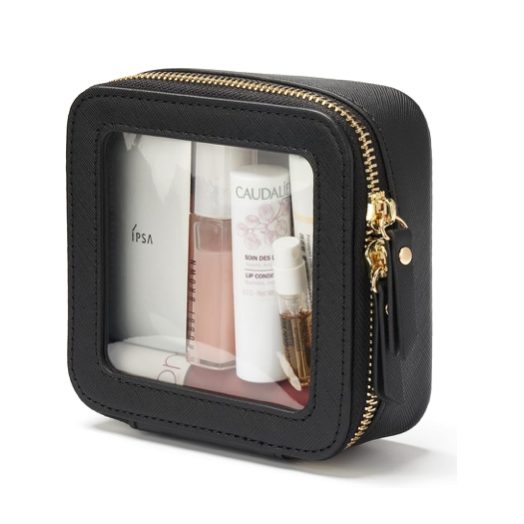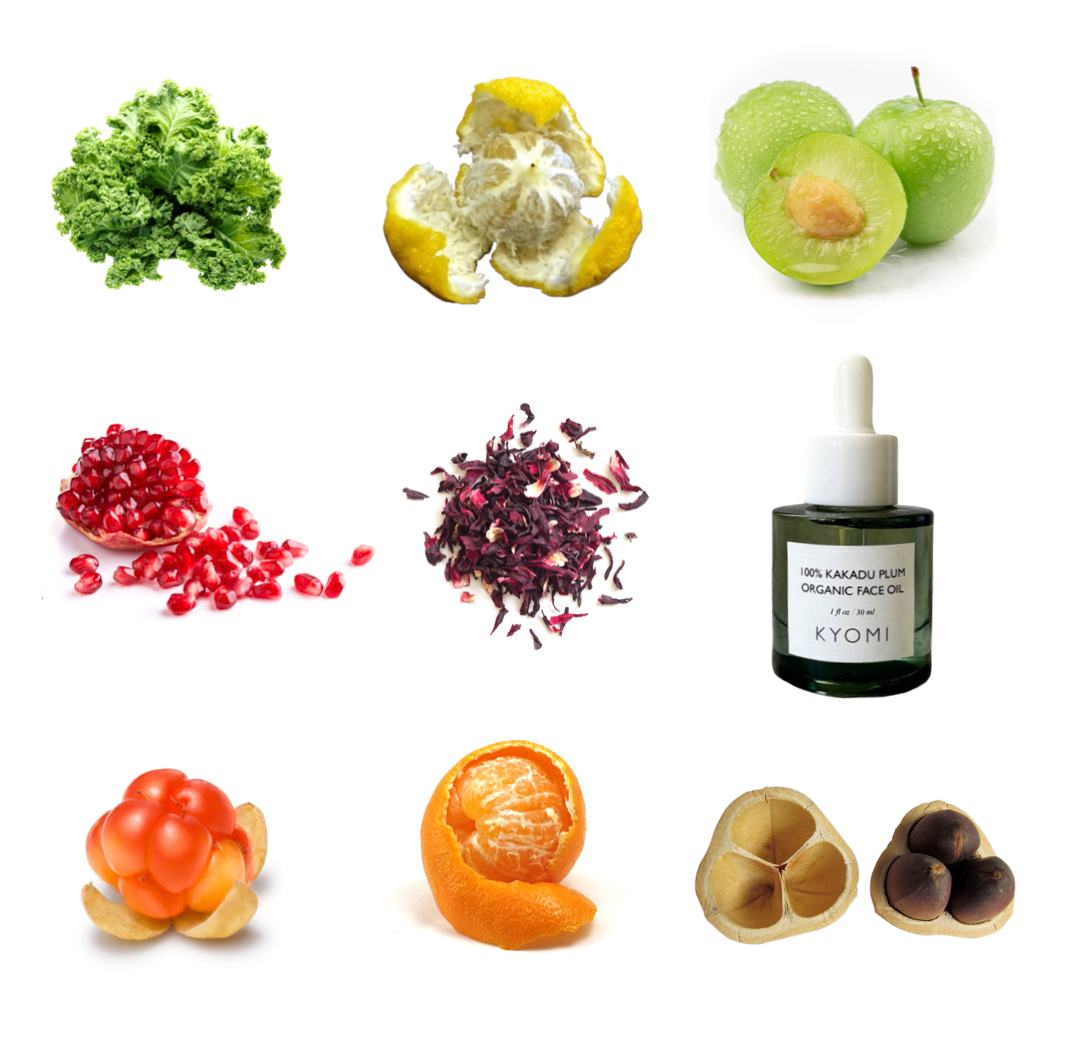In the world of skincare, antioxidants have become one of the most talked-about ingredients—and for good reason. Found naturally in plants, fruits, and botanicals, antioxidants are the skin’s first line of defense against daily environmental stressors like UV radiation, pollution, and free radicals.
But what exactly are antioxidants? How do they work? And why are they especially important in natural and organic skincare? This guide will break it all down in simple, beginner-friendly terms.
What Are Antioxidants?
At their core, antioxidants are compounds that neutralize free radicals—unstable molecules produced by exposure to sunlight, pollution, cigarette smoke, and even stress. Left unchecked, free radicals can damage skin cells in a process called oxidative stress. Over time, this contributes to premature aging, hyperpigmentation, and a dull, uneven complexion.
By donating an electron to stabilize free radicals, antioxidants help prevent this chain reaction of damage. In short, they keep your skin healthier, stronger, and more resilient.
Why Are Antioxidants Essential in Skincare?
The skin is constantly exposed to environmental aggressors. While our bodies have their own natural antioxidant defenses, these can become overwhelmed, especially with age. Topical antioxidants act as reinforcements—boosting the skin’s ability to fight oxidative stress.
Studies have shown that antioxidants not only protect against damage but also encourage repair, soothe inflammation, and improve overall skin tone and texture (Lin et al., 2005).
In organic and natural skincare, these protective benefits are often delivered through plant-derived oils, extracts, and bioactive compounds.
Antioxidants in Organic Skincare: Why They Matter
Natural and organic skincare relies heavily on botanicals. Many plants are rich in antioxidants because they produce them to protect against their own environmental stressors, such as UV light and pollution. These same compounds can be harnessed for human skin health.
Unlike synthetic additives, plant-based antioxidants often come with synergistic nutrients—vitamins, minerals, and fatty acids—that work together to nourish and protect the skin.
A few key reasons antioxidants are a cornerstone of organic skincare:
1. Defense Against Environmental Damage
Botanical antioxidants like polyphenols (found in green tea and grape seed extract) help reduce oxidative stress caused by UV rays and pollution. Research highlights their ability to lower DNA damage and prevent lipid peroxidation in the skin (Katiyar, 2003).
2. Brightening and Evening Skin Tone
Antioxidants such as vitamin C are known for their brightening effects. They can reduce the appearance of dark spots and improve overall radiance by inhibiting melanin production (Zhang & Duan, 2020).
3. Calming Inflammation
Natural antioxidants like resveratrol (from grapes) and flavonoids (from chamomile and calendula) have anti-inflammatory properties that help soothe irritated skin and reduce redness (Pinnell et al., 2001).
4. Supporting Skin Repair
Some antioxidants help stimulate collagen production and aid in the repair of damaged skin cells, leading to a smoother, firmer complexion.
Common Antioxidants Found in Natural and Organic Skincare
Here are some of the most effective plant-derived antioxidants to look for in your skincare:
Vitamin C (Ascorbic Acid)
-
Found in: Kakadu plum, acerola cherry, citrus fruits
-
Benefits: Brightens skin, supports collagen synthesis, protects against UV-induced damage
Vitamin E (Tocopherol)
-
Found in: Sunflower oil, plum oil, cacay oil, argan oil, wheat germ oil
-
Benefits: Moisturizes, strengthens skin barrier, works synergistically with vitamin C
Polyphenols
-
Found in: Green tea, grape seed, pomegranate
-
Benefits: Powerful anti-inflammatory, protects against photoaging
Carotenoids (Beta-carotene, Lycopene)
-
Found in: Sea buckthorn, rosehip, carrot seed oil
-
Benefits: Neutralizes free radicals, supports healthy skin tone
Ferulic Acid
-
Found in: Rice bran, oats, apple seeds
-
Benefits: Stabilizes and enhances the effectiveness of other antioxidants
Resveratrol
-
Found in: Red grapes, berries, Japanese knotweed
-
Benefits: Calms skin, protects against UV damage, supports elasticity
How to Add Antioxidants to Your Skincare Routine
Adding antioxidants doesn’t have to be complicated. Here’s how beginners can start:
Start Simple
Look for a serum, face oil, or moisturizer that contains a mix of botanical extracts rich in antioxidants. In organic skincare, these often come from berries, seeds, and leaves.
Layer Wisely
Apply antioxidant products after cleansing but before heavier creams or sunscreens. This ensures they’re in direct contact with the skin for maximum effectiveness.
Pair with Sunscreen
Antioxidants and SPF are a powerful combination. While antioxidants help neutralize damage from free radicals, sunscreen blocks UV rays from causing them in the first place.
Consistency Is Key
Oxidative stress is ongoing, so regular use of antioxidant-rich products is essential for long-term benefits.
Debunking Common Myths About Antioxidants
Myth 1: Antioxidants replace sunscreen.
They don’t. Antioxidants support your skin’s defense system but cannot block UV rays on their own. Always pair them with SPF.
Myth 2: All antioxidants are the same.
Different antioxidants target different types of free radicals. Using a variety of plant-based extracts provides broader protection.
Myth 3: Only synthetic antioxidants are effective.
Research shows natural, plant-derived antioxidants like polyphenols and flavonoids are highly effective (Pinnell et al., 2001).
Why Beginners Should Care About Antioxidants
If you’re new to natural skincare, think of antioxidants as your skin’s personal bodyguards. They’re gentle enough for daily use and versatile enough to benefit all skin types—from dry and sensitive to oily and acne-prone.
By choosing antioxidant-rich, plant-based products, you’re not only protecting your skin but also embracing a more holistic, earth-conscious approach to beauty.
References
-
Lin, J. Y., et al. (2005). “Topical Antioxidants in Skin Care: A Review of Their Role and Efficacy.” Journal of the American Academy of Dermatology, 53(4), 569–589.
-
Katiyar, S. K. (2003). “Skin Photoprotection by Green Tea: Antioxidant and Immunomodulatory Effects.” Current Drug Targets - Immune, Endocrine & Metabolic Disorders, 3(3), 234–242.
-
Zhang, L., & Duan, E. (2020). “Fighting Against Skin Aging: The Way from Bench to Bedside.” Cell Transplantation, 29, 1–12.
-
Pinnell, S. R., et al. (2001). “Topical Antioxidant Therapy for Skin Aging.” Dermatologic Surgery, 27(2), 137–148.












